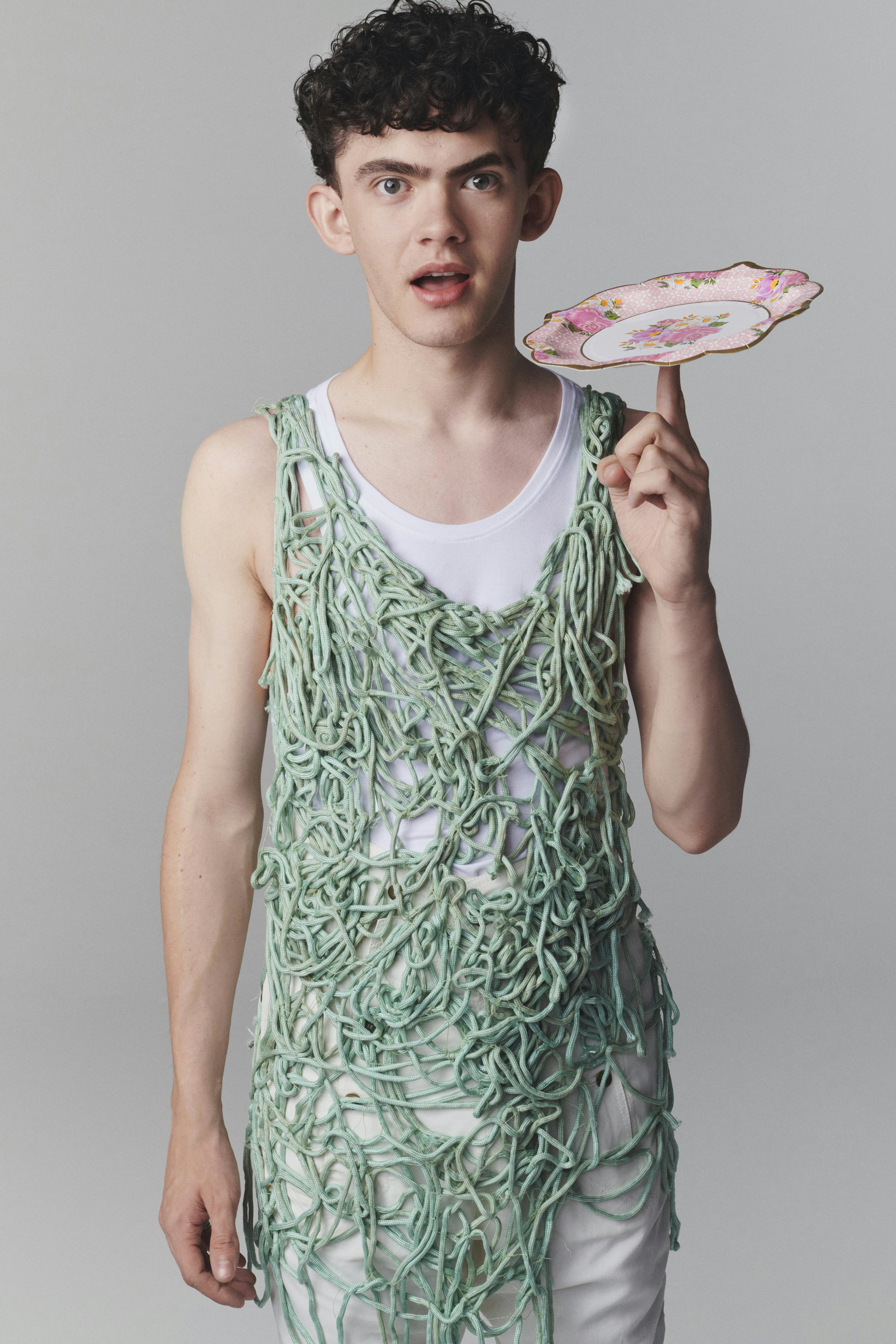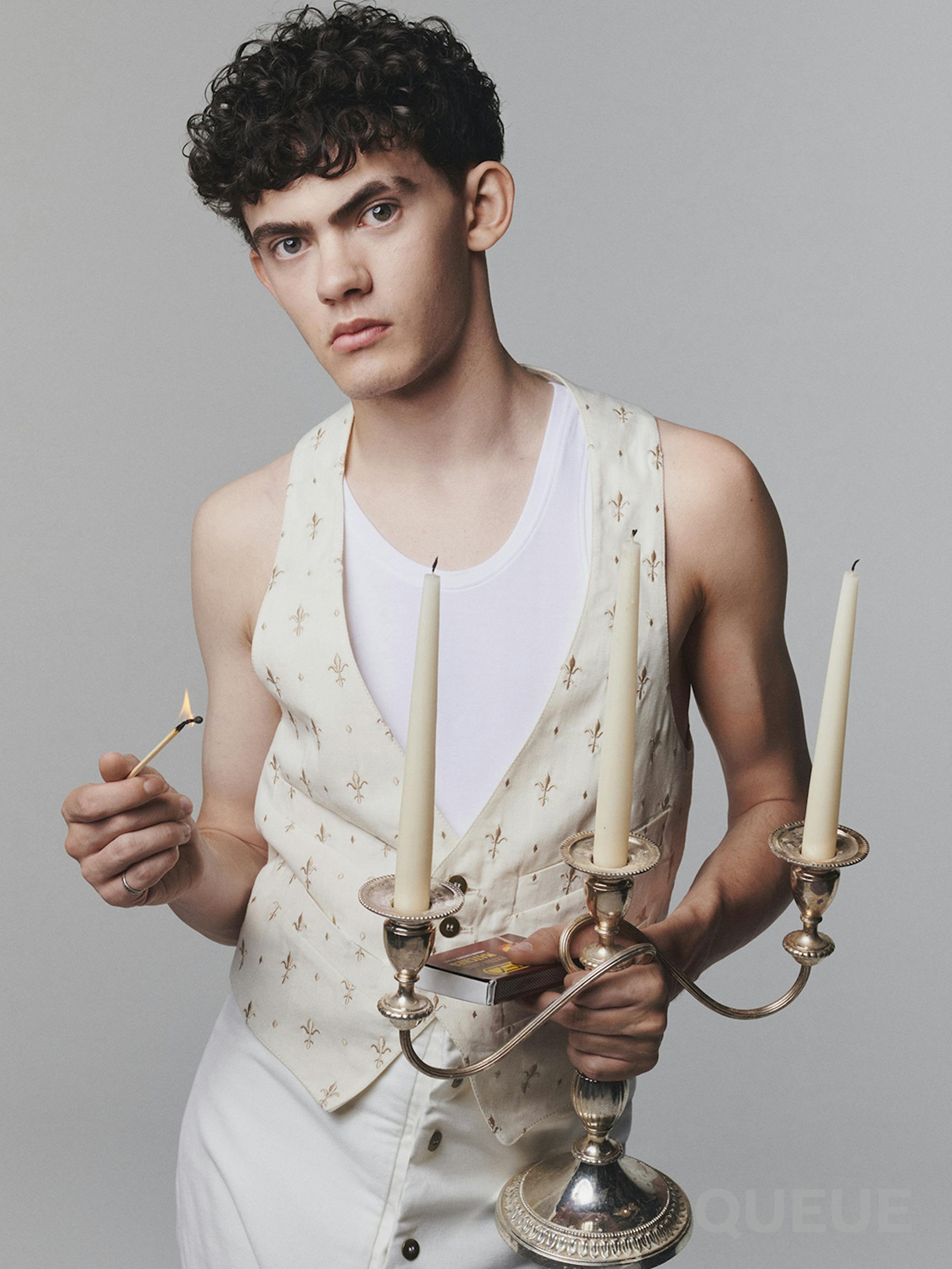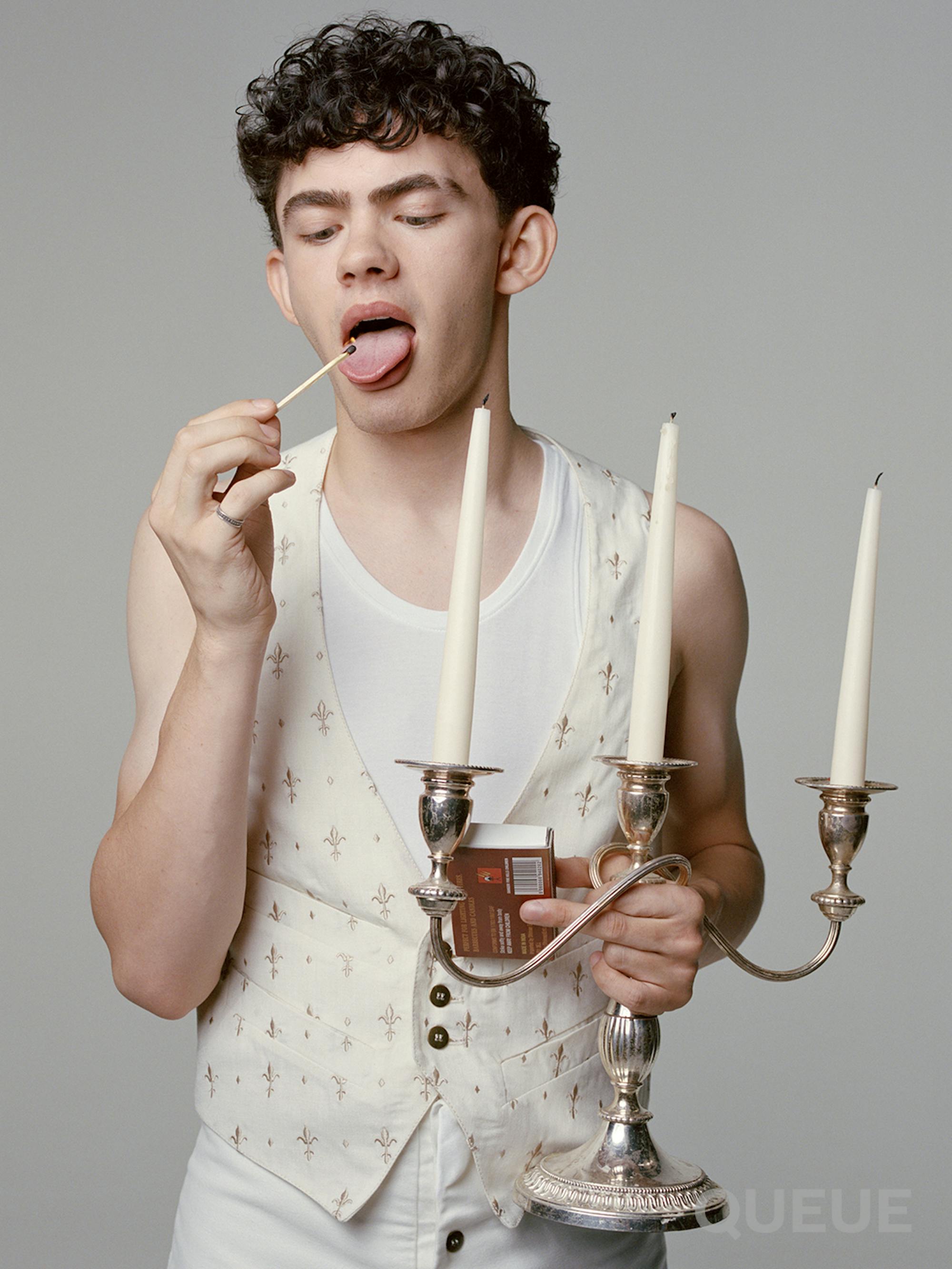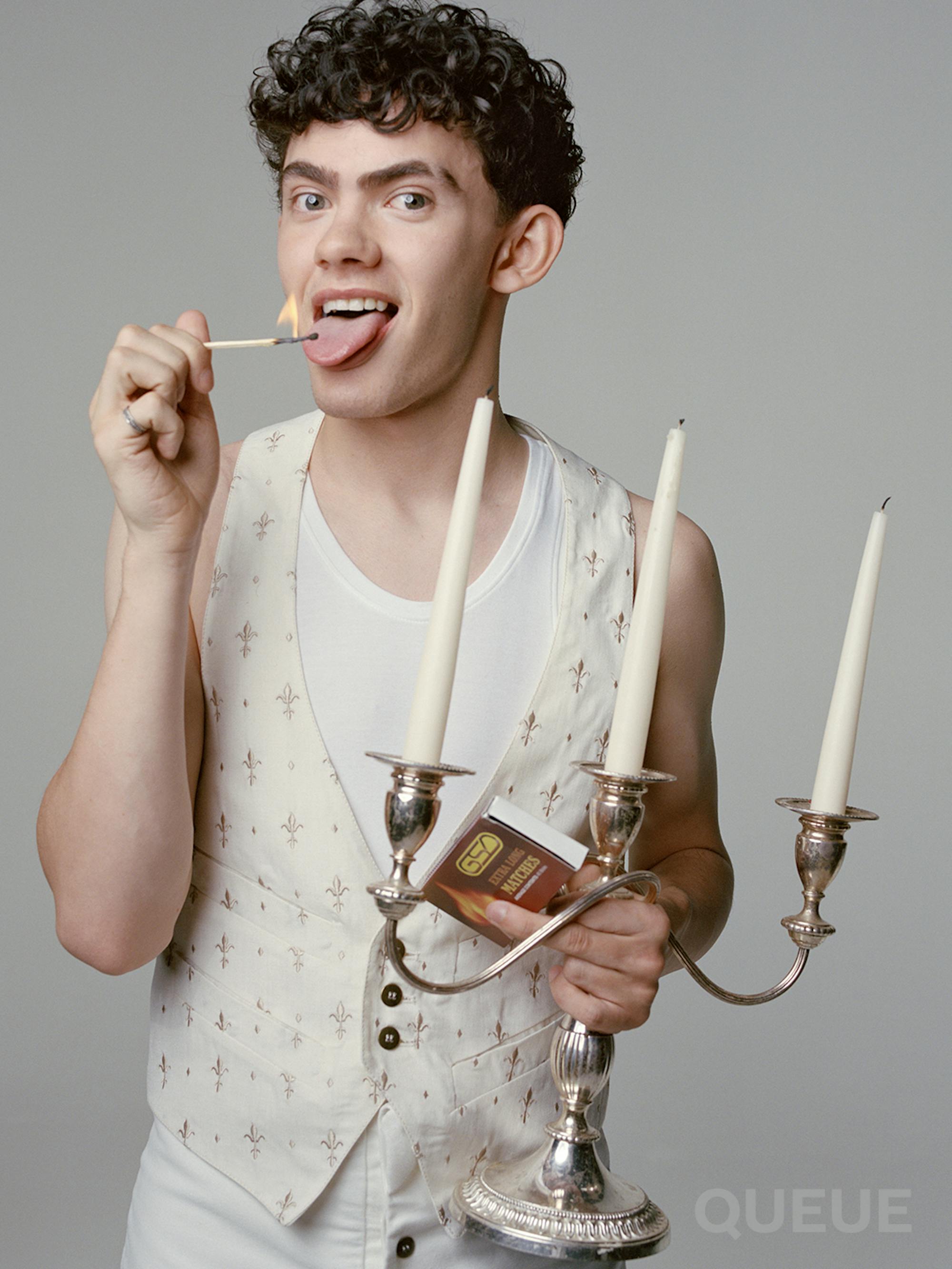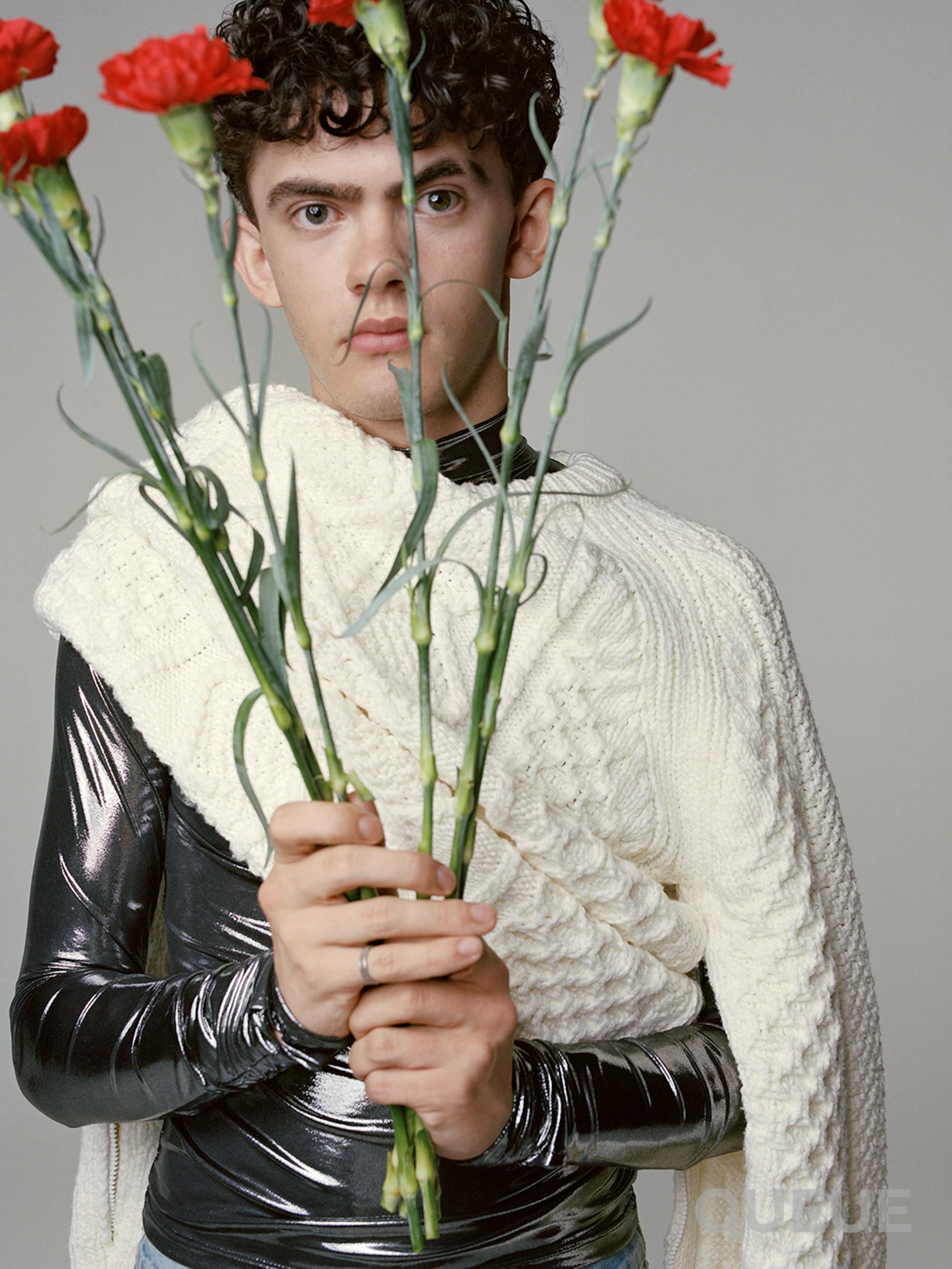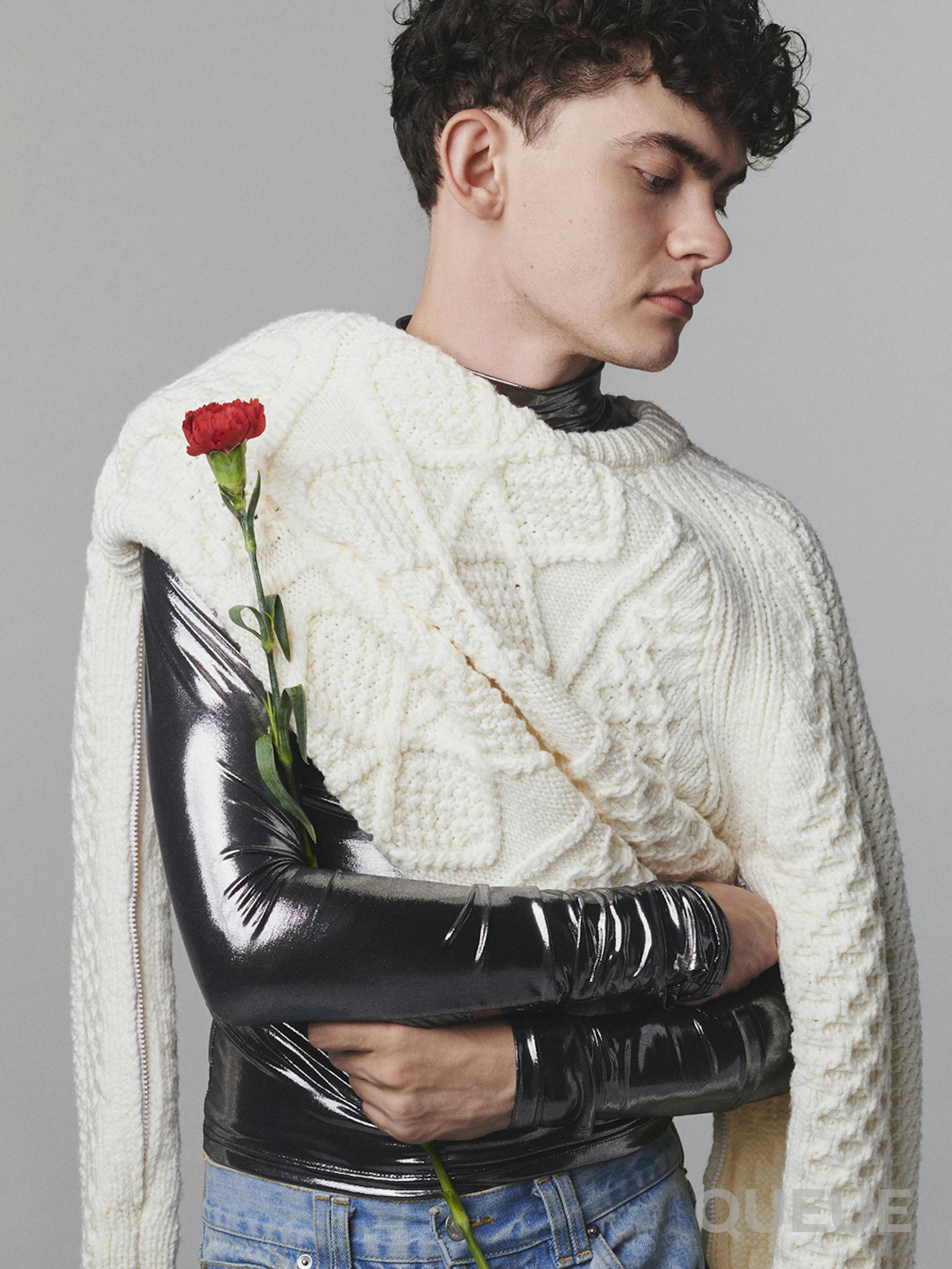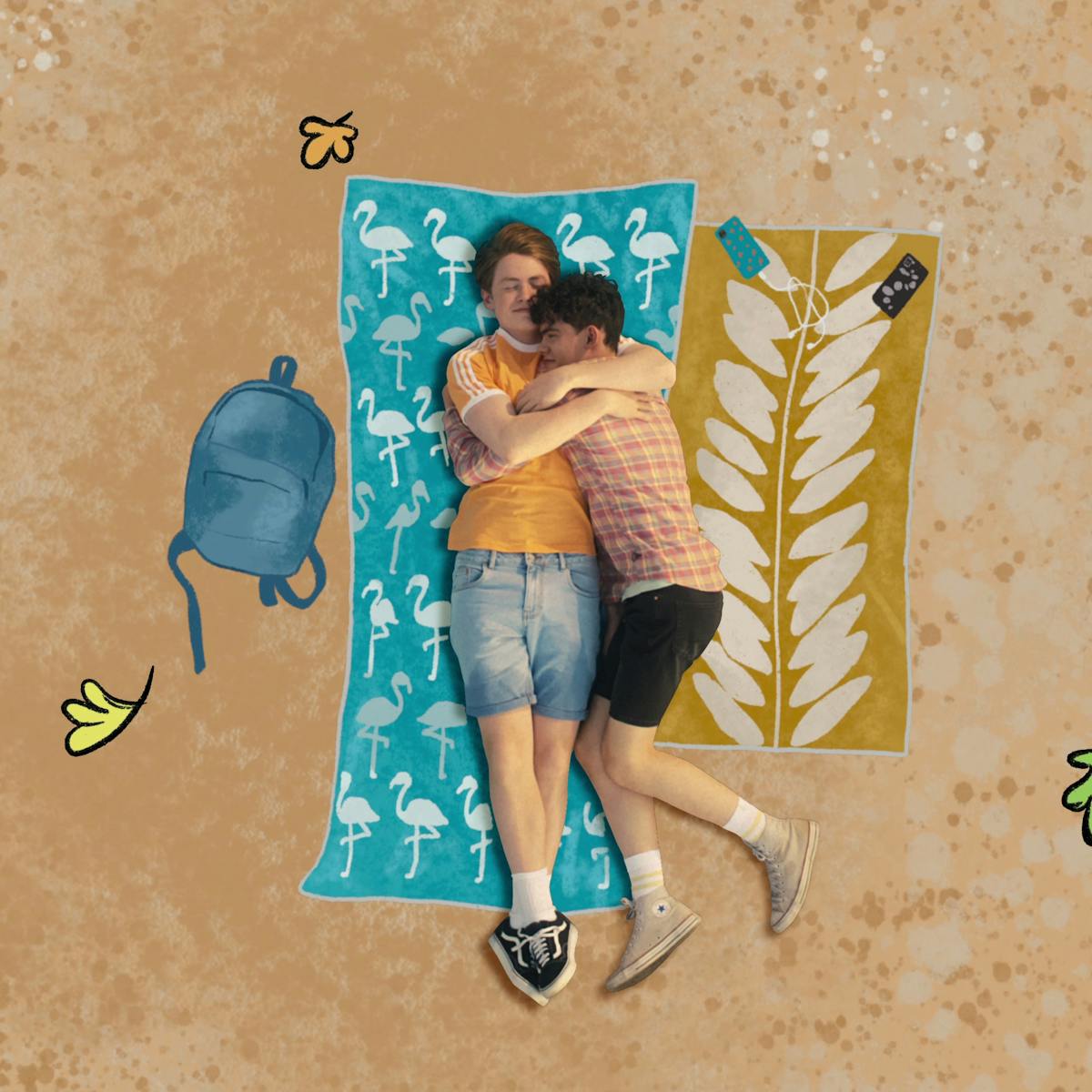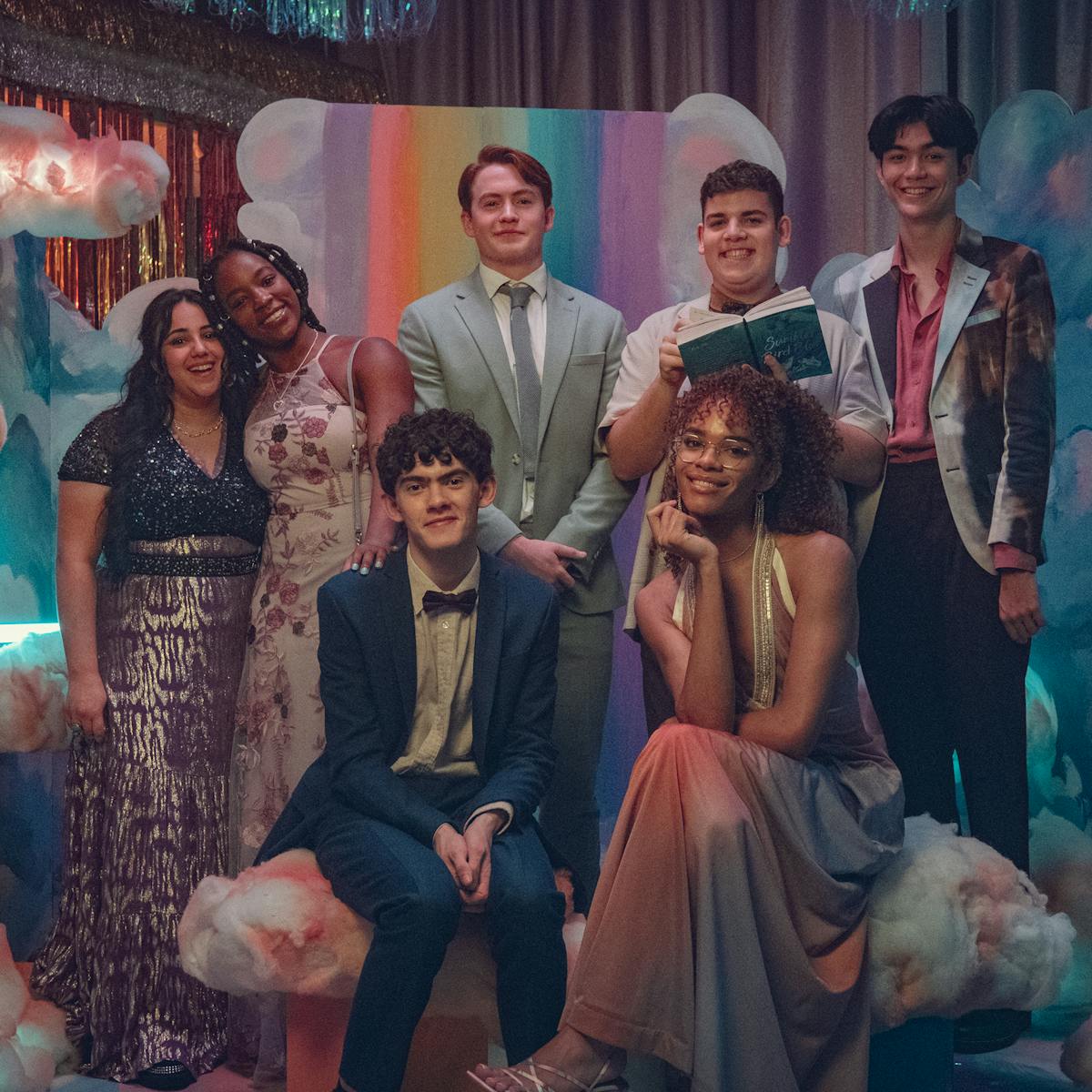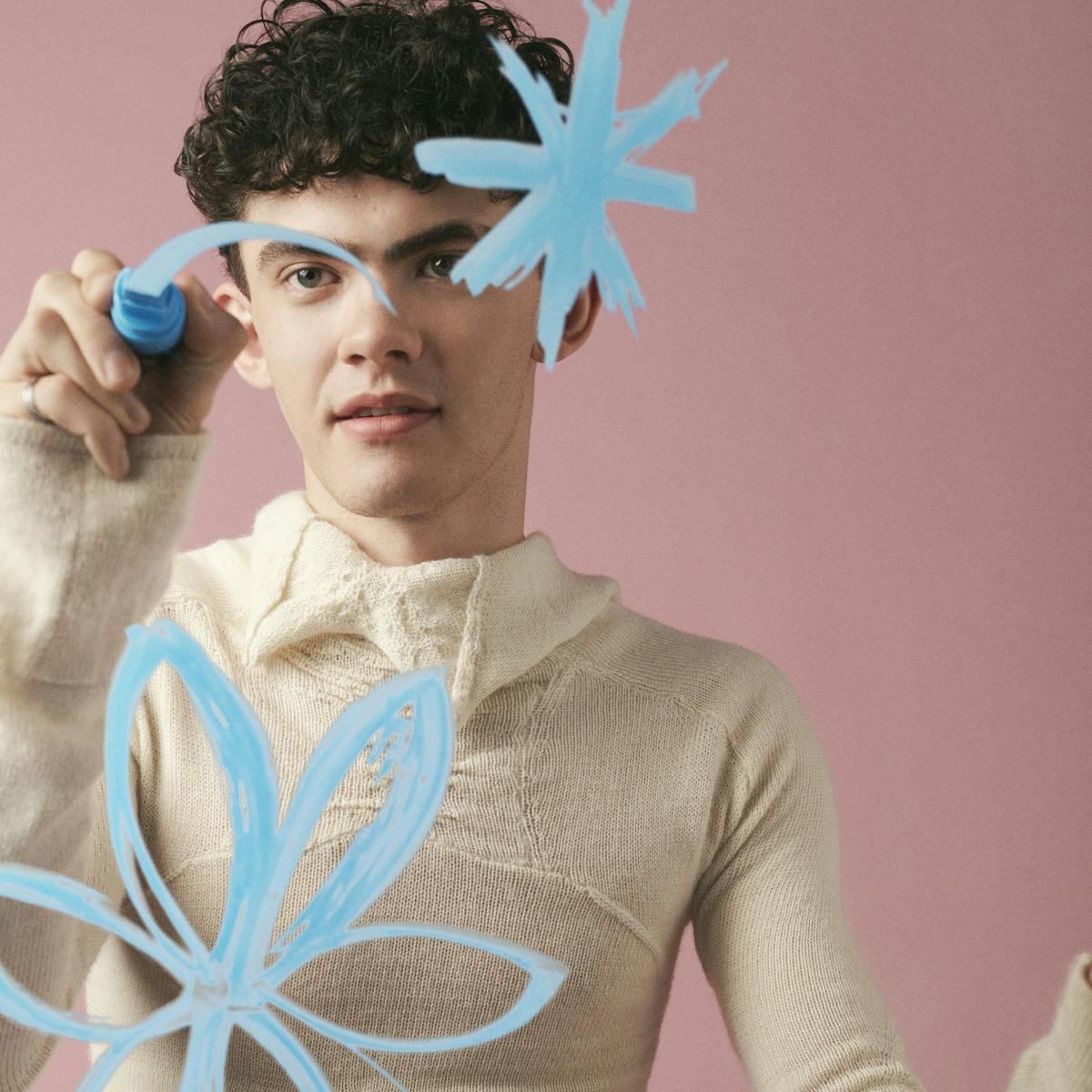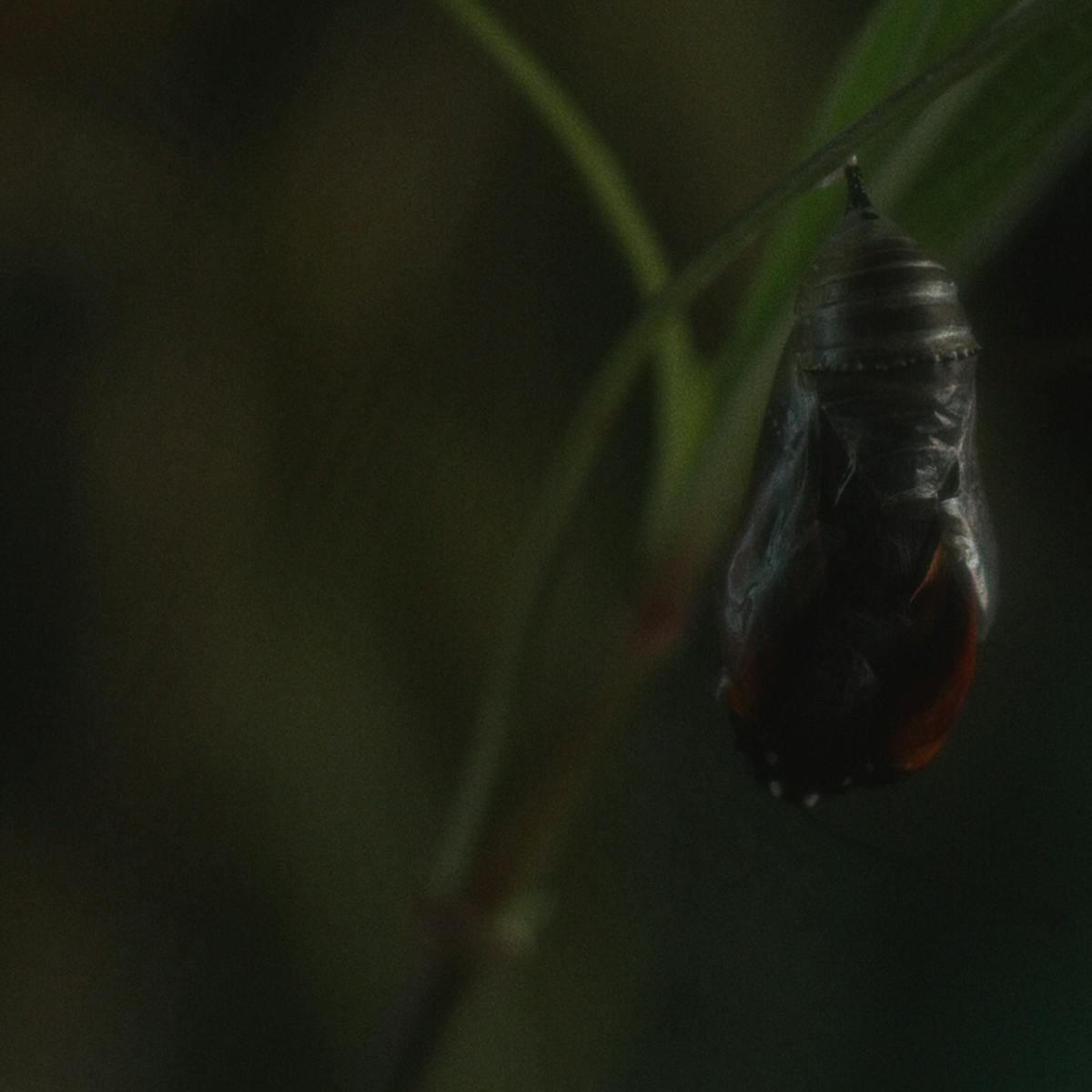As Charlie Spring in the viral series Heartstopper, the young actor brings all the energy and emotion of high school to the screen.
Joe Locke, the spry co-lead of the global phenom Heartstopper, has recently learned a skill that can typically take actors decades to acquire: the art of shutting out the noise. “I think we’ve all gotten very good at not thinking about the enormity of the show’s scale,” says Locke of his castmates. “Because if you do that, your brain will combust. We’re all very good at not thinking about that.”
Giving the illusion of not thinking about it too hard has become a Locke trademark, and it’s proved essential to preserving the integrity of his work while navigating overnight fame. In Heartstopper, there’s an empathetic familiarity to the 20-year-old actor’s portrayal of Charlie Spring, an awkward teenager who falls for the brawny rugby-playing Nick Nelson (Kit Connor) at a high school in the southeast of England. With naturalism and sensitivity, Locke embodies the jittery unease of a character battling growing pains and prejudice, while also giving bite to Charlie’s more decisive moments. “Charlie had this quiet confidence in Season 1. He’s able to ask Nick out and [do] all of those things, which I think take a lot of guts,” Locke says. “In Season 2, we see more of a feisty Charlie. He stands up for what he believes in.”
After premiering in April 2022, Heartstopper instantly shot into the Netflix Top 10 and, later that year, won four Children’s & Family Emmy Awards including Outstanding Teen Series. It was nominated for a BAFTA TV award for the adapted screenplay by Alice Oseman, who also penned the graphic novel on which the series is based. There’s an irresistible magic to the show’s celebration of young queer love, showing it as both precious and within reach, and garlanding it with expressive doodle-like animations — a whimsical counterpoint to the gritty hedonism of many of today’s teen-centered shows. “It turns out that what a lot of folks want right now isn’t a commemoration of queer pain, but a romance about puppy love,” wrote the New York Times.
Heartstopper had a headstart over its peers thanks to widespread affection for its source material. Oseman, who also serves as executive producer, had been a Tumblr sensation in the mid-2010s for their Heartstopper webcomic, which later became a print bestseller after its first volume was published in 2019 (the fifth installment arrives this November).
The series has struck a resounding chord with audiences and turned Locke into a magazine cover star, fashion week fixture, and Gen-Z style maven, thanks to his penchant for bold outfits. One undeniable indicator of the show’s impact on young adults is TikTok; on the platform, fans post analyses and theories, and set their favorite clips to yearning ballads from Lana Del Rey or Billie Eilish. The Heartstopper hashtag has been viewed over 14 billion times — almost enough for every person in the world to have seen one of the videos twice. “It’s so great being a part of a show that means so much to so many people and has genuinely affected them,” says Locke.
QUEERNESS ISN'T JUST ONE BINARY.
Joe Locke
While the first season of Heartstopper applied a rosy new lens to a boy-meets-boy narrative, the second season gets into thornier territory. What happens after the meet-cute, and how does one navigate struggles like depression, eating disorders, and homophobic family members while still trying to figure out who they are as a person?
“The relationship is becoming more like a proper relationship rather than a schoolboy romance,” says Locke, adding that Charlie “struggles with being out as a couple and the pressures that come along with that.” In Season 2, Charlie helps Nick navigate the choppy waters of opening up about his sexuality to family and friends, but his selfless streak can be an Achilles heel. “Charlie cares so much about everyone else in his life that, if anything, Nick’s coming out probably stresses him out more than it stresses Nick out,” says Locke. “That’s just Charlie.”
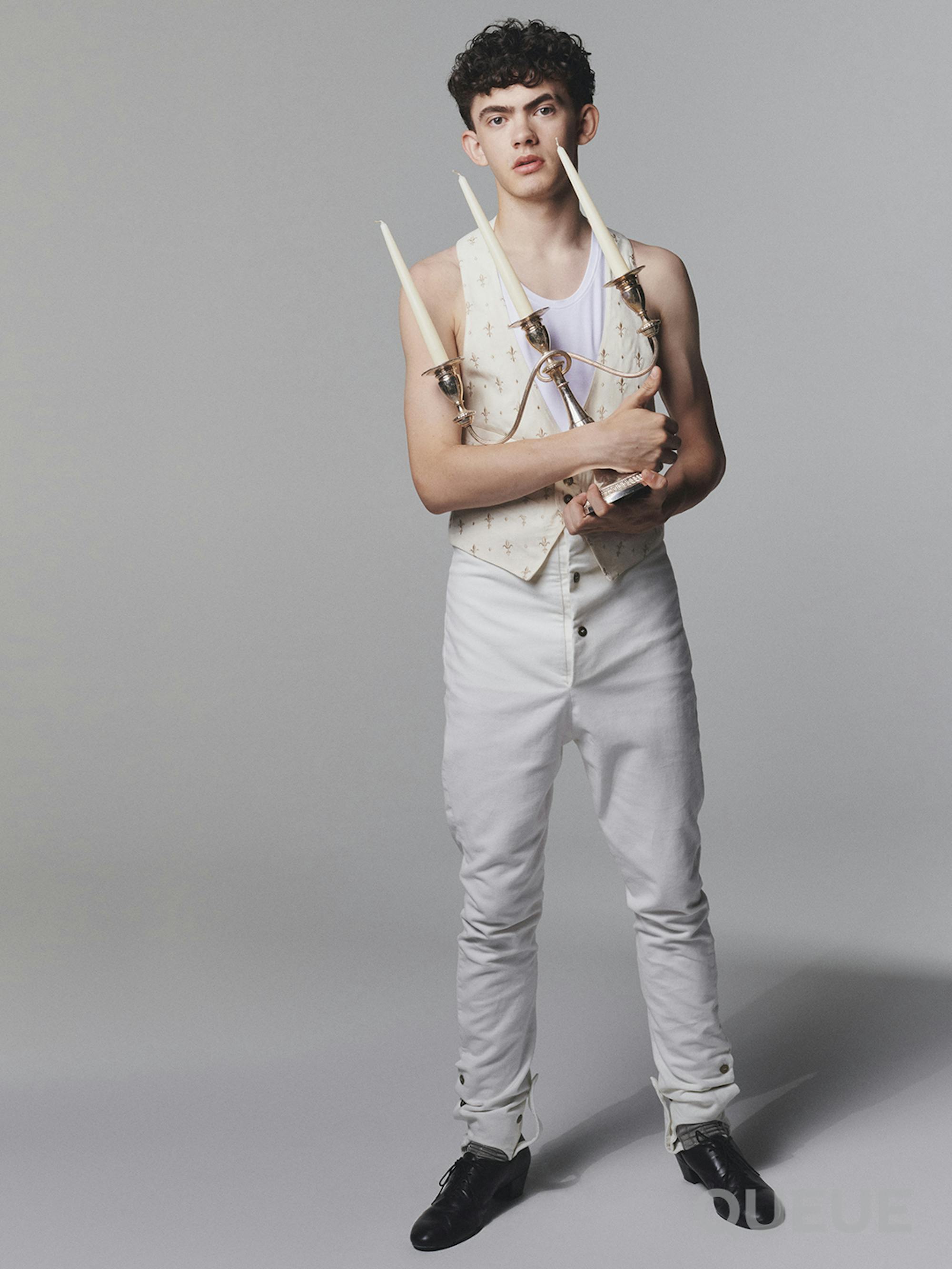
Joe Locke
It’s the kind of performance that demands a deep bond and mutual respect between its stars. “Kit and Joe know Nick and Charlie so deeply now and they have such a trusting and strong acting partnership,” says Oseman. “I truly count myself blessed that these two incredible actors are playing two of my dearest characters.”
Locke caught the acting bug early, growing up in the bucolic yet isolated town of Douglas on the Isle of Man, an island in the Irish Sea where the nearest city — Liverpool — is a three-hour ferry ride away. Locke had a tendency to introversion, but found he could express himself onstage and badgered his mom into signing him up for five acting classes at once. He showed the same dedication to scoring the role of Charlie. As the casting process happened during COVID, Locke traveled from his home to the U.K. mainland to audition. After a mandatory isolation period of two weeks, his audition blew the casting team away, and the then-unknown Locke was plucked from 10,000 potential actors to take on the role of Charlie.
If all we watched and all we consumed was media in which everyone dies and everyone’s sad, then we’re never going to be able to have a world where people are happy because people don’t know what that looks like.
Joe Locke
Locke acts with intuitive subtlety, a quality that forms the foundation of his onscreen magnetism and has won him a plum role in Marvel’s upcoming Agatha: Darkhold Diaries series. The second season of Heartstopper is also a touching depiction of chosen family, with a deeper look at the individual stories of Charlie and Nick’s ride-or-dies. There’s relationship-testing turmoil for the young lesbian couple Tara and Darcy, Isaac comes to terms with asexuality, and spunky Tao and Elle, who is transgender, take tentative steps towards romance. Locke understands how crucial it is to spotlight the spectrum of L.G.B.T.Q.I.A.+ experiences. “Queerness isn’t just one binary,” says Locke. “We see a lot of gay male relationships in the media compared to other relationships, so it’s great that we can share those other types as well.”
Heartstopper is celebrated for its wholesome, uplifting storytelling. But there will always be cynics, Locke recognizes. “I’ve seen some people use Heartstopper’s positivity as a negative and it baffles me,” he says. “You just want to watch depressing, sad stuff where everyone is awful and the world is awful? You can’t create a world of joy without pumping some joy into it. If all we watched and all we consumed was media in which everyone dies and everyone’s sad, then we’re never going to be able to have a world where people are happy because people don’t know what that looks like.”
The show’s nuanced optimism takes on a particular power in today’s social climate, says Locke. “With the huge anti-trans movement that’s pushing forward, it’s so important that we show trans people aren’t dangerous,” he says. “They’re just living and existing and their existence doesn’t stop you existing.”
Away from the camera, Locke has doubled down on his personal activism, with tangible results for the L.G.B.T.Q.I.A.+ community. After the actor called out the Isle of Man’s “archaic” ban on gay men donating blood at a Pride event last year, the island revised its exclusionary policies. And this summer, Locke joined his castmates at London Pride to march and celebrate. “When you go through doing a show together for two and a half years, it creates this bond that I don’t think anyone can quite understand,” says Locke. “No matter what we ever do, we’re always going to be bonded for life, and that’s my favorite thing.”
